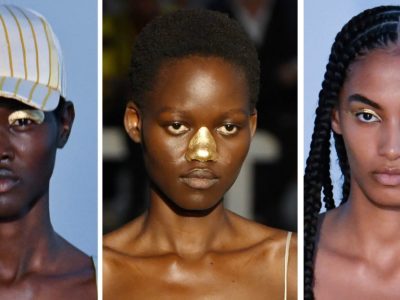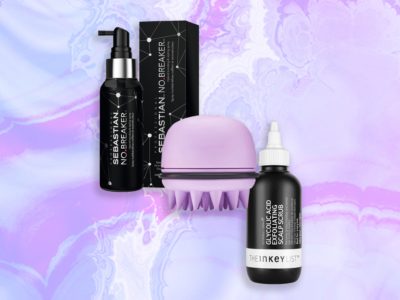
Pregnancy and breastfeeding come with their own special set of joy and pain. You may find some satisfaction in buying new clothes, while dietary changes and opting for less adventurous activities may be less thrilling. Either way, there’s a lot to consider both pre- and post-baby — including what you put on your skin. You’re already going through so many changes, and finding new products that work with your existing and new skin concerns can be tricky, and honestly, a bit stressful, but there are options to help you fully bask in your best pregnancy glow.
Start by weeding out what won’t work for the next few months while you’re pregnant and nursing. If you ever have any uncertainty about the safety of a product, it’s probably a good idea to run your current lineup of products by both your dermatologist and gynecologist at the start of your pregnancy. According to Morgan Rabach, a board-certified dermatologist in New York City, ingredients such as salicylic acid, retinol, and hydroquinone should be avoided by pregnant and nursing women. Salicylic acid and retinol are typically all-stars for treating acne and clearing up dark spots, but Rabach says these ingredients have not been deemed safe for pregnant and nursing moms and should be avoided.
Next, know the types of skin changes to expect. For example, it’s not uncommon to battle a bit of acne during this time. “Breakouts are a big concern during pregnancy, says Rabach. “All the hormones surging are similar to teenagers, which leads to more breakouts than usual.”
She also shares that pregnant women can also see more pigmentation issues than they would have pre-pregnancy. “Melanin-stimulating hormones, which are the same type of hormone as estrogen, [can] increase and cause dark spots,” says Rabach, resulting in melasma, a pigmentation condition that causes dark patches on the face or cheek, or general discoloration in other spots on the body.
Some women may see the formation of a dark line on the center of the stomach — it’s called the linea nigra. “The linea nigra comes from the melanin stimulating hormones and resolves after pregnancy on its own,” says Onyeka Obioha, a board-certified dermatologist in Los Angeles who specializes in treating hyperpigmentation and skin of color.
There’s also a pregnancy-specific rash called pruritic urticarial papules and plaques of pregnancy (PUPPP), which Obioha says, “women can get during their third trimester of pregnancy, but it is only known to affect a woman’s first pregnancy.” It shows up as itchy patches often on or around stretch marks. There’s no known cause for PUPPP and it clears up after delivery.
“In general, patients should understand that PUPPP is a well-recognized condition, usually limited in duration, and does not imply any increased maternal or fetal risk — so, no need to worry,” says Hilda Hutcherson, a professor of obstetrics and gynecology at Columbia University College of Physicians and Surgeons.
With so much to keep in mind, it can be quite overwhelming to shop for the right dark spot correctors, itch-relief creams, and sun-protecting products while pregnant. Read on to find out which dermatologist-recommended skin-care replacements you can easily swap into your routine to keep you and baby safe.
All products featured on Allure are independently selected by our editors. However, when you buy something through our retail links, we may earn an affiliate commission.





